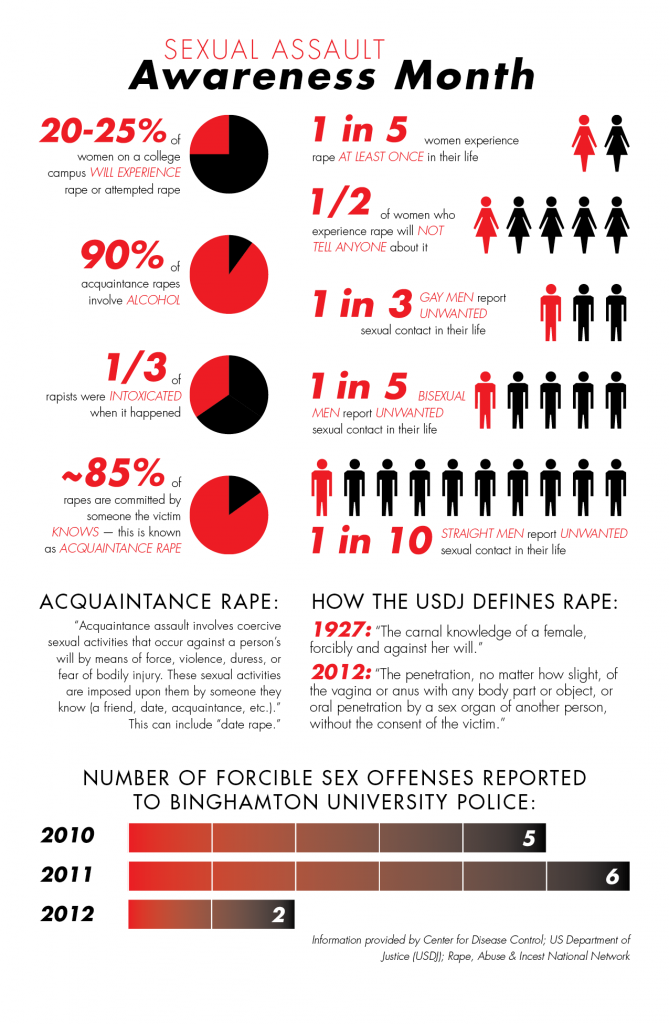
Binghamton University is raising awareness about sexual violence as a part of Sexual Assault Awareness Month (SAAM).
The nationwide campaign, which takes place each April, focuses on promoting healthy sexual relationships and sexuality.
According to the University Police Department (UPD), sexual assault is defined as any unwanted and non-consensual sexual contact. Contact can occur by force, through physical harm or coercion, by intoxication and incapacitation. In addition, if the victim is underage, he or she is unable to legally give consent.
While national statistics say that 3 percent of college women are sexually assaulted each year, UPD only receives three to five reports of sexual assault each year.
Madeline Bay, deputy chief of UPD, said that sexual assault is a problem everywhere and that it is just as prevalent at BU as it is nationwide. However, she said it is underreported on campus.
Students can report an attack to other offices on campus besides UPD, such as the Dean of Students Office, Decker Student Health Services Center, the University Counseling Center and Interpersonal Violence Prevention (IVP).
Earlier this month, IVP tabled in the University Union to encourage students to sign a pledge against sexual assault. The pledge aimed to reduce sexual violence and to inspire good bystander practices.
According to UPD data, in the majority of sexual assault cases, the victim and the attacker are familiar with each other.
“We do not get many ‘stranger in the alley’ sexual assaults on campus,” Bay wrote in an email. “Most victims either know the perpetrators personally or as acquaintances – maybe someone they met in class, at a party, or downtown.”
Bay said awareness and education are the best defenses against sexual assault.
“Men, the most common perpetrators, need to know that sexual assault – rape – is a crime,” Bay wrote. “They need to know that the actions they take, and when we are talking about college atmosphere, those actions include purposely getting women intoxicated and/or targeting intoxicated women and then sexually assaulting them, are criminal. Even if the woman does not say ‘no’, it is because she is too intoxicated to understand what is happening, and therefore cannot consent. We also suggest women use common sense – stay with friends, don’t drink the punch and take self defense classes.”
UPD policy suggests that if a student is assaulted, he or she should immediately seek medical assistance. Emergency rooms can provide disease prevention and treatment for injuries with or without a police report.
If a student lives on campus and reports a sexual assault, UPD will investigate. Students who live off campus may still report to UPD and will receive support, but the area police department will conduct the formal investigation.
“When a student reports a sexual assault to UPD, we take it very seriously. We will first make sure the student is safe and make sure any immediate medical needs are taken care of,” Bay wrote. “We will listen to the victim and find out what happened.”
Bay said that sexual assault awareness should not just be limited to one month each year.
“EVERY day, students need to know that sexual assaults are wrong and illegal and that we need to lower those national stats,” she wrote. “There needs to be respect and understanding.”


